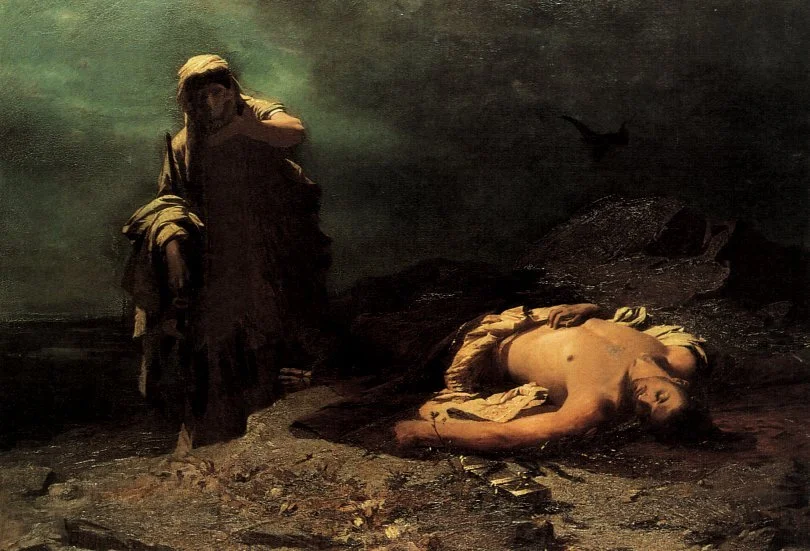The Consequences of Defiance
“Who of mankind can sustain,
O Zeus, a transgression of your power?"
Artwork: Antigone in front of the dead Polynices, by Nikiforos Lytras (1865)
Next, the Chorus of Theban Elders sing a lament about Antigone’s bold defiance of Creon’s law. They seem shocked by her willingness to challenge the king’s authority of the king—but also at the ruckus about such the seemingly small act of spreading dust over the body of her brother, Polynices. This reflection spurs the chorus to reflect more deeply on the fragile nature of human affairs. On the surface, it may seem almost insignificant to scatter dust on a body, but in the context of defying the states’s authority, the act becomes bolder and more contentious. It seems to have moral consequences. At the same time, the chorus is keenly aware of the reach of divine justice: none can escape it. They foreshadow that only disaster can come from Creon’s unwillingness to compromise, and Antigone’s refusal to obey him. Antigone’s act of defiance is like a spark that starts a great fire. However noble her intentions were, it is the catalyst for the impending downfall that will rock the future of Thebes. The chorus knows that the tragedy will not unfold with unstoppable force.
-
Read Sophocles’ Antigone.
